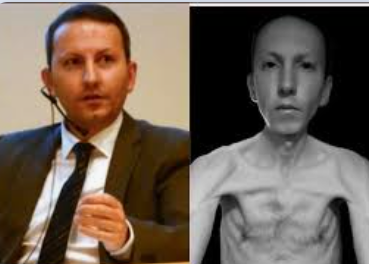France will not think twice about reimposing United Nations sanctions on Iran if negotiations to reach a deal over its nuclear program do not succeed, its foreign minister told the UN Security Council April 28.
France, Britain and Germany – the “E3” – are parties to the 2015 nuclear deal with Iran that expires in October and have the power to initiate its mechanism for reimposing sanctions, called “snapback,” at the Security Council.
“It goes without saying that when the Iranian nuclear deal expires in a few weeks, if European security interests are not guaranteed, we will not hesitate for a single second to reapply all the sanctions that were lifted 10 years ago,” Jean-Noel Barrot said.
According to diplomats, the E3 countries are now looking to trigger snapback by August if no substantial deal is concluded by then. The opportunity expires October 18.
“These sanctions would then permanently close off Iranian access to technology, investment, and the European market, with devastating effects on the country’s economy. This is not what we want, and that is why I solemnly call on Iran to take the necessary decisions today to avoid the worst,” Barrot said.
Under the 2015 deal, there is a process known as “snapback” that would reimpose UN sanctions on Iran.
If the parties cannot resolve accusations of “significant non-performance” by Iran, this process can be triggered at the 15-member United Nations Security Council.
Once initiated, the Security Council must vote within 30 days on a resolution to continue Iran’s sanctions relief, requiring nine votes in favor and allowing no veto by the United States, Russia, China, Britain or France.
If the resolution is not adopted, all UN sanctions on Iran would be reimposed unless the Security Council takes some other action.
President Trump said in August 2020 that he was triggering the snapback process. However, all the remaining parties to the deal—Iran, Germany, France, Britain, Russia and China—told the Security Council they did not recognize the US move because Trump had withdrawn from the nuclear agreement and only participants could trigger snapback.
The remaining participants all have the power to trigger the snapback process but in reality, only Germany, France and Britain—not China and Russia—are interested in doing so.
Britain, France and Germany have all told the Security Council they are ready to pursue a snapback. They have pushed for a “comprehensive” report from the IAEA on Iran’s nuclear activities, which could also strengthen the case for sanctions.
First, accord participants must work through a dispute resolution mechanism outlined in the deal, which Britain, France and Germany triggered in January 2020. Russia disputes this.
In strategizing about a snapback move at the Security Council, Britain, France and Germany are likely to consider that Russia is the council president in September.
If there is a snapback, measures imposed by the Security Council on Iran in six resolutions from 2006 to 2010 would be restored.
These include:
* An arms embargo
* A ban on uranium enrichment and reprocessing
* A ban on launches and other activities with ballistic missiles capable of delivering nuclear weapons as well as ballistic missile technology transfer and technical assistance
* A targeted global asset freeze and travel ban on Iranian individuals and entities
* Authorization for countries to inspect Iran Air Cargo and Islamic Republic of Iran Shipping Line cargoes for banned goods.






















